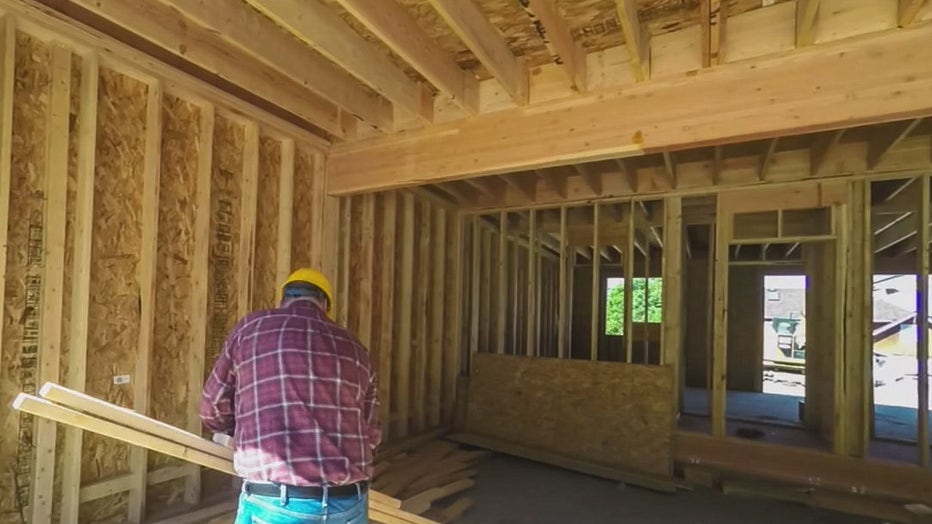Tariff implications may wreak havoc on the housing market, says expert

Ripple effect of tariffs impact the housing market
When you factor in a possible additional tax on building materials from Canada and elsewhere, the real estate market is bracing for impact. Even the threat of a tariff can have long-term ramifications.
FOX 2 - Long before tariffs were part of our everyday conversation, the housing market has been struggling to keep up with demand.
When you factor in a possible additional tax on building materials from Canada and elsewhere, the real estate market is bracing for impact. Even the threat of a tariff can have long-term ramifications.
Dig deeper:
"Even with interest rates being relatively high right now you would think that people might be backing off on buying as much real estate," said Michael Greiner, assistant professor of management at Oakland University. "But yet houses are turning around, sometimes with multiple bidders within a day.
"And a big reason is we do not have enough construction to meet the demand as it is, right now," he said.
Professor Greiner says this is a problem that dates back to 2008, when the house lending bubble burst. He says builders today are hesitant to jump back in right now.
"They have kind of backed off from getting ahead of themselves as much as they were back then," he said.
FOX 2: "They didn’t want to set themselves up for the same kind of failure?"
"Yes, exactly," he said.
And then add in another uncertainty, like tariffs on Canadian wood for example.
"They produce something like 85% of the softwood that is used in housing construction," Greiner said. "That is the primary wood that is used for building with the framing going up, that’s all softwood. And the fact that would be something that is subject to the tariffs, would be something extremely damaging to home builders."
Those builders have to be willing to take on a lot of risk without knowing what the future will hold.
Currently, Greiner says Michigan is fairing better than the rest of the country.
"They are dealing with wholesale shortages where people are literally homeless because there is not housing for them," he said. "You look at California and the Northeast, and housing has become downright unaffordable."
Where there is risk, there is often reward - which is the case for those looking to sell right now.
"Even here, you can see where a house goes for sale and within a day, you've got multiple offers," Greiner said.
The professor says the implications of tariffs go beyond building costs.
"The bigger impact in terms of the buyers is really the interest rates," Greiner said. Interest rates as they are, are relatively high."
And predicting when those rates will drop, is tricky.
"At the start of this year, basically there was a zero percent chance we were going to have a recession within the next year," Greiner said. "Now the estimates are as high as 60 or 70 percent chance. That is driven almost entirely by this uncertainty and these tariffs."
So, what does this all mean for those on the fence, wondering if now is the time to buy or sell? Greiner says it might be time to change the way the view your house.
"A home is not an investment, a home is where you live," he said. "If you are talking a second home or a business, but for your home it’s where you live. If the home is something that works for you and you can afford the payments on, then stay there."
The news isn’t much better for those who are currently renting.
According to Realtor.com, the month of March saw a 20th consecutive year-over-year decline of the renting cost by $20. But economists predict tariffs will limit building and reverse that cycle.
The Source: Information from various reports and an interview with economic expert Professor Michael Greiner contributed to this story.


